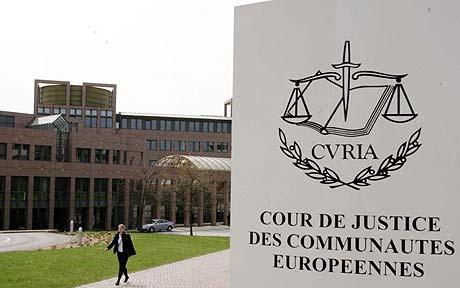ISPs prohibited P2P filtering by the European Court of Justice

The European Court of Justice, the highest court in the European Union, recently ruled that P2P filters used by ISPs violate the European Directive on electronic commerce as well as fundamental rights.
This is one ‘painful’ blow to the ISPs that conserve and shed bandwidth by checking P2P (or peer-to-peer) traffic and deeming that all of it is basically unlawful sharing of copyrighted content and software.
The origin of the story is quite interesting as it’s part of a case filed by the SABAM (the Belgian equivalent of the RIAA), which sued the ISP named Scarlet for not filtering P2P traffic, thus facilitating copyright infringement. As a result, Scarlet was ordered to install a filtering system by a Brussels Lower Court to monitor internet traffic of its subscribers.
Scarlet didn’t appreciate this at all, and in response took the case to higher grounds and appealed against the verdict in the European Court of Justice arguing that a filtering system could be incompatible with the Directive on electronic commerce and with fundamental rights. This was ruled in agreement with Scarlet by the European Court of Justice.
“In the present case, the injunction requiring the installation of a filtering system involves monitoring, in the interests of copyright holders, all electronic communications made through the network of the internet service provider concerned. That monitoring, moreover, is not limited in time,” stated the Court of Justice, “Such an injunction would thus result in a serious infringement of Scarlet’s freedom to conduct its business as it would require Scarlet to install a complicated, costly, permanent computer system at its own expense,” it continued.
“What is more, the effects of the injunction would not be limited to Scarlet, as the filtering system would also be liable to infringe the fundamental rights of its customers, namely their right to protection of their personal data and their right to receive or impart information, which are rights safeguarded by the Charter of Fundamental Rights of the EU,” proceeded the Court.
“It is common ground, first, that the injunction would involve a systematic analysis of all content and the collection and identification of users’ IP addresses from which unlawful content on the network is sent. Those addresses are protected personal data,” the Court further clarified, stating “Secondly, the injunction could potentially undermine freedom of information since that system might not distinguish adequately between unlawful content and lawful content, with the result that its introduction could lead to the blocking of lawful communications.”
For more information, the full ruling can be accessed here.








